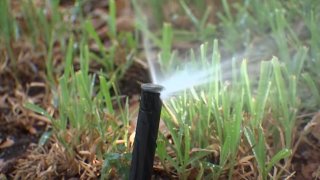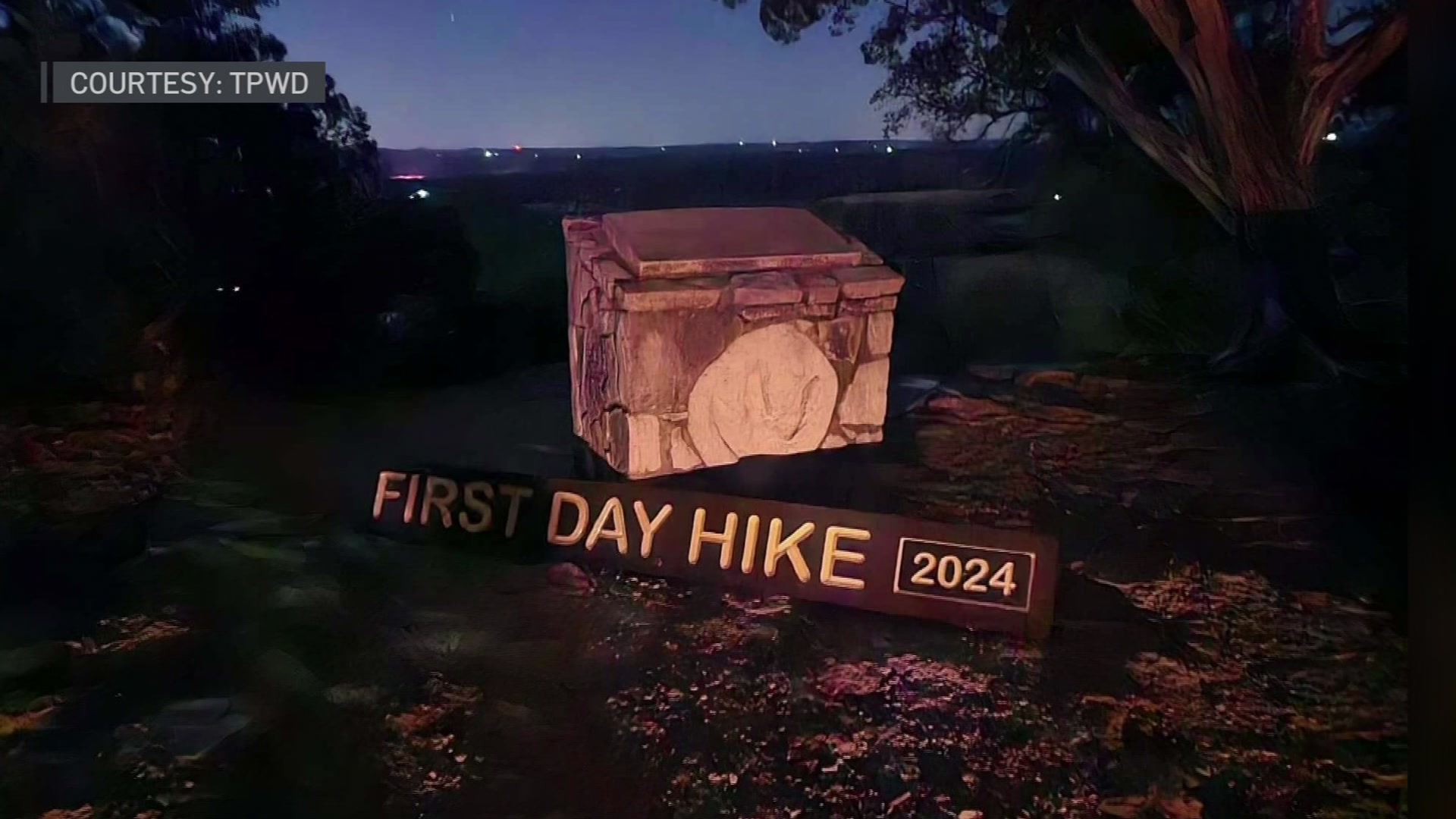
Curious about the best things you can do to care for your lawn in the fall and winter seasons? You do still need to water, but how much is enough in the cooler months? Should you aerate once or twice a year? The answers to some common questions are below.
TO WATER OR NOT TO WATER?
Many North Texas homeowners stop watering their lawns in the fall and winter months, thinking it's time for their grass to go dormant for the colder months. But your grass still needs water.
Your grass goes to "sleep" or dormant to preserve moisture and nutrients. This is why your lawn turns a brownish or gray color. Your lawn needs water in the fall and winter months to help roots stay healthy for growth in the spring months. But your lawn will need less water than in the summer months.
Get top local stories in DFW delivered to you every morning. >Sign up for NBC DFW's News Headlines newsletter.
DO I NEED TO TURN OFF MY SPRINKLER SYSTEM?
You will need to adjust your sprinkler system for the colder months.
Use the “Seasonal Adjust” feature on your sprinkler system controller to change the zone run times to a percentage of the programmed schedule set up for the summer months. This will adjust your fall and winter watering times.
Local
The latest news from around North Texas.
Also, various sensors connected to your controller will also help regulate sprinkler system operations by shutting it down when it starts to rain or when freezing temperatures are reached.
You should turn off your sprinkler systems during hard freezes (temperatures lower than the mid-20s). Turn off the water to the system at the isolation valve and drain any above-ground gear-drive rotor sprinklers to prevent freezing and rupturing. You must also insulate some above-ground components.
COVERING OUTDOOR PIPES AND FAUCETS
Is a good idea to cover outdoor pipes and faucets during a hard freeze. Winterizing your outdoor faucets is covering them with a temperature-insulated covering to prevent them from freezing. Freezing temperatures in faucets may lead to freezing temperatures in your water pipes since faucets are a direct lead-in to your plumbing system. This could cause water ruptures inside and outside your home.
Also, there are alternatives to covering your outdoor pipes and faucets:
- Wrap an old towel, rag, or T-shirt around the end of your faucet securely. Keep the material as close as possible to the faucet surface.
- Cover the end of the faucet where the cloth has been wrapped around it with a storage bag or another zipper plastic storage bag. Bring the plastic bag’s edges up to the building’s perimeter where the faucet is located.
- Wrap the faucet head with a roll of duct tape and the plastic bag and cloth below it. Keep all of the materials as tight as possible to prevent the covering from sliding.
DO I NEED TO KEEP MOWING MY LAWN?
During the cooler months, your lawn doesn’t grow as quickly. However, continue to mow it to the proper height for your type of grass. It’s recommended as well to keep your grass type closer to the tallest height in its range.
Mowing your grass for the last time before winter depends on when your grass type stops growing and the first freeze. It’s best to do the last cutting after the lawn has gone dormant and before the first freeze. Do not mow during a freeze, as this can stress and damage the grass to the point where it might not grow back.
RAKE, TRIM AND AERATE
It is a good idea to rake leaves on your lawn during the fall and winter. Piles of mulched leaves can create a thatch on top of the soil and suffocate your grass, so raking is a good way to expose the soil to oxygen. Also, leaves can lead to insect problems.
Aerating your lawn in the fall or spring, or both, helps break up compacted soil by removing a plug of dirt that exposes the soil to water, nutrition and oxygen, allowing the roots of the grass to spread out and grow. If you're going to DIY your aeration project by renting an aeration machine, be sure to watch out for sprinkler heads and shallow service lines.
Trim your shrubs and trees during the colder months. Fertilize them to protect them against disease and insects.



